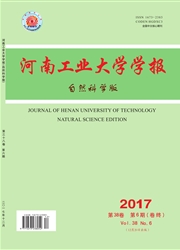

 中文摘要:
中文摘要:
利用瞬态平面热源法测量花生油在30~240℃下的导热系数,主要探讨了温度、测试时间、加热功率等参数对花生油导热系数的影响.结果表明:在低温和高温段,其导热系数随着温度升高而非线性增大;为使测量结果可靠,需设置合适的试验参数,其导热系数随测试时间和加热功率增加而稍微增大;但是在高温下,如果测试时间和加热功率设置偏大,会导致花生油发生对流传热,使试验结果误差很大.
 英文摘要:
英文摘要:
We measured the thermal conductivity of peanut oil at 30 ℃ to 240 ℃ using transient plane source method, and discussed the effects of temperature, testing time, and heating power on the thermal conductivity of peanut oil. The results showed that the thermal conductivity of peanut oil increased nonlinearly as the temperature rose in both the low temperature stage and the high temperature stage; a proper test parameter was required to ensure reliable measurement result, and the thermal conductivity would increase slightly with the increase of testing time and the heating power; but at high temperature, convective heat transfer of peanut oil wotmd occur if setting a large testing time and large heating power, which might result in large measurement error.
 同期刊论文项目
同期刊论文项目
 同项目期刊论文
同项目期刊论文
 期刊信息
期刊信息
